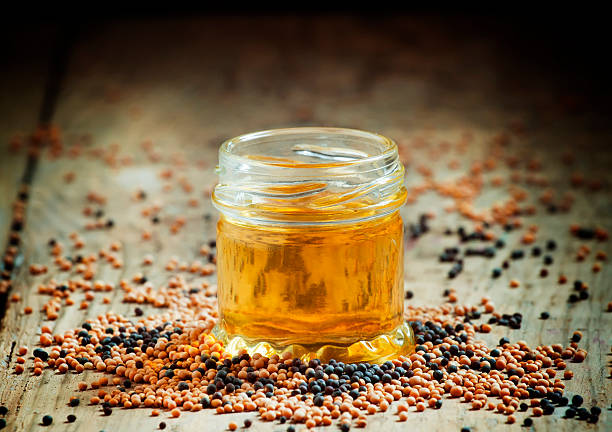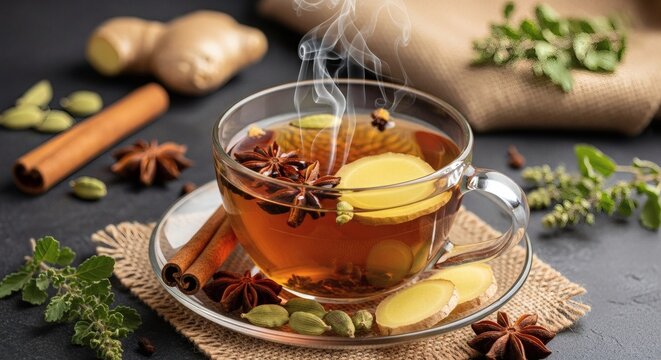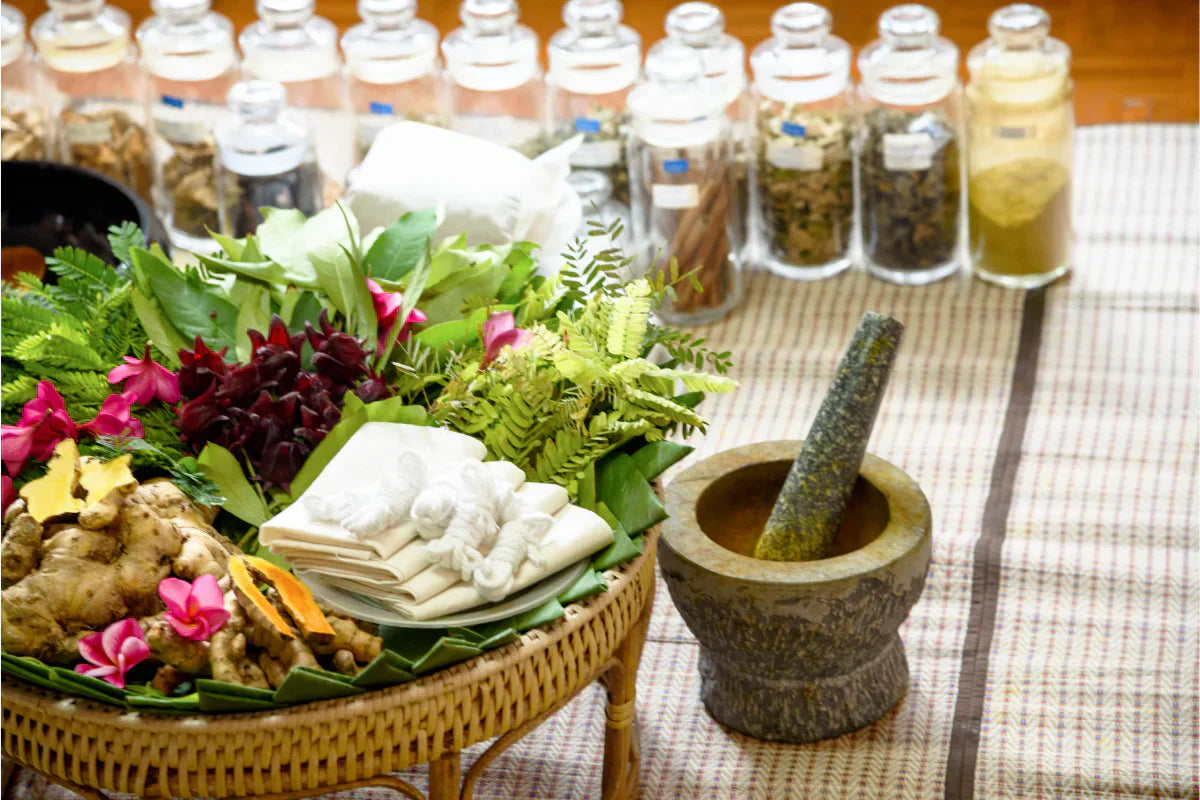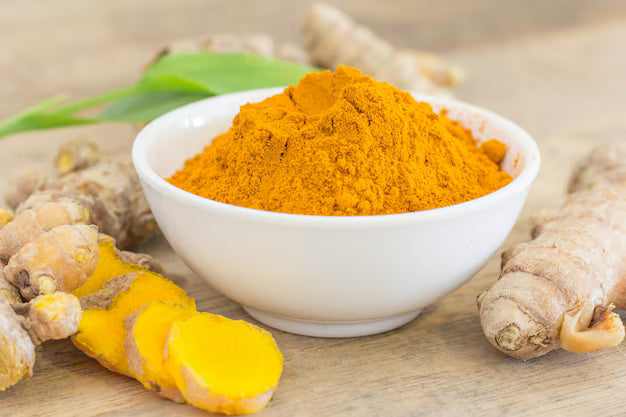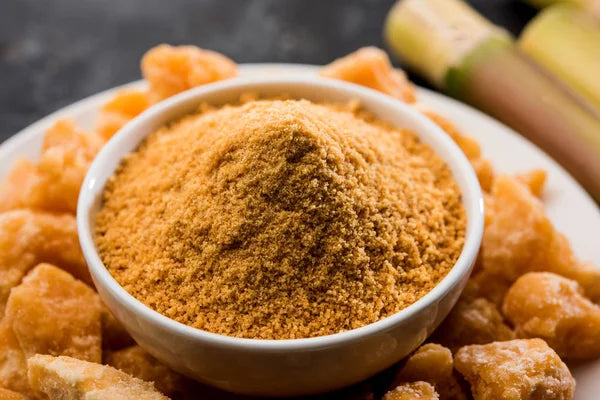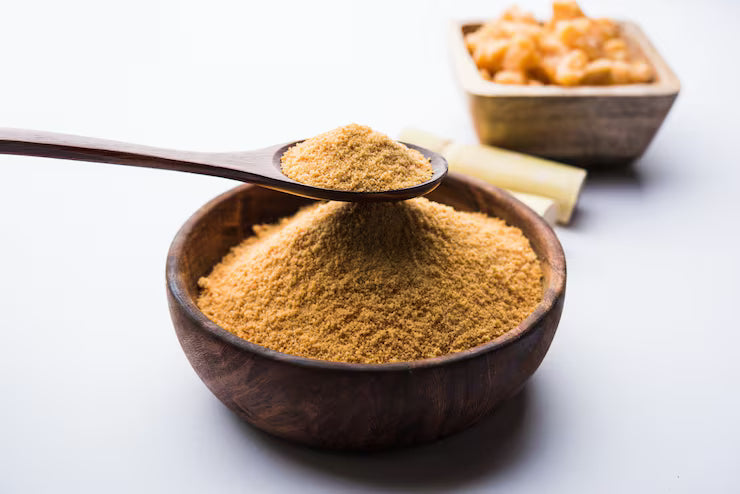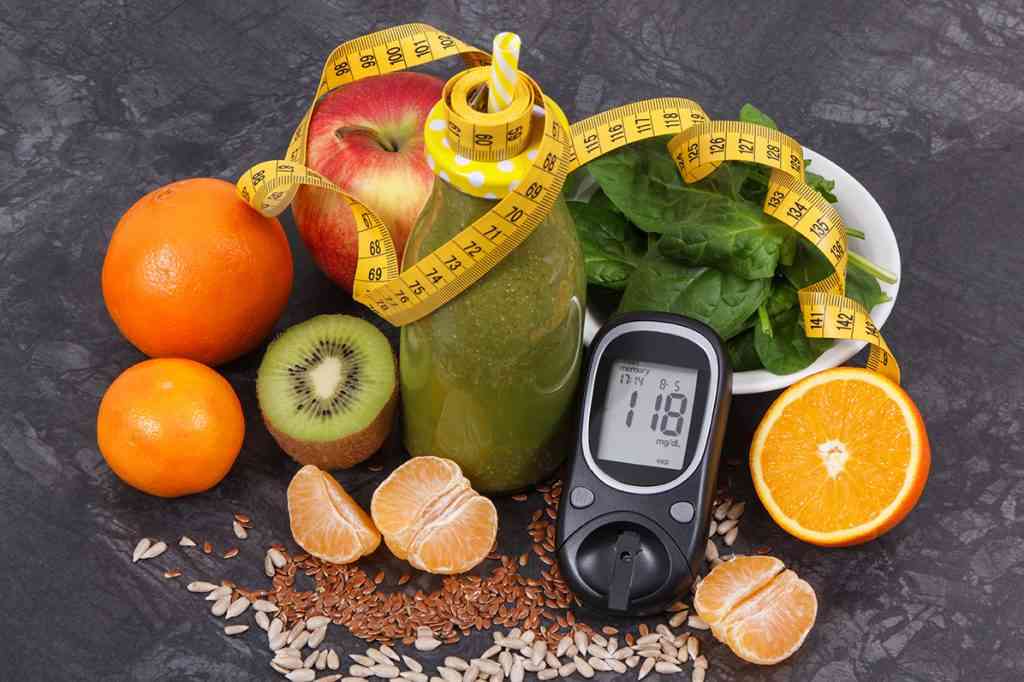Ayurvedic Toothpaste & Oral Care Myths Debunked for Better Oral Health
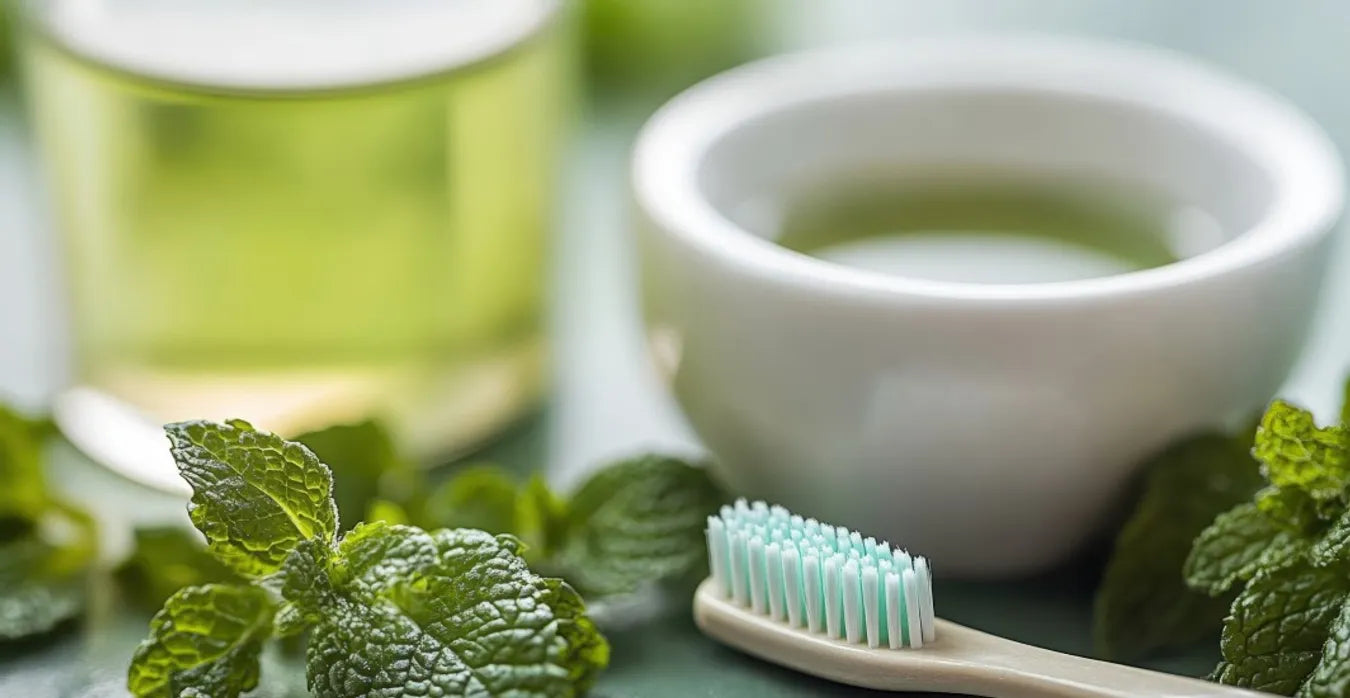
When it comes to oral health, most people reach for modern fluoride toothpastes. But did you know that Ayurvedic toothpaste and Ayurvedic oral care products have been trusted in India for thousands of years, long before synthetic foaming agents and chemical preservatives existed? Today, premium formulations like Maharishi Ayurdent toothpaste are reviving this ancient wisdom with scientifically validated herbal blends that are safe, effective, and chemical-free.
Myth 1 – Ayurvedic Toothpaste Is Just Neem and Clove
Fact: Ayurvedic toothpastes contain much more than these two herbs. Ayurveda provides holistic oral care based on herbal blends and go to the root of problems.
Thanks to marketing!!
Ayurvedic wisdom in dentistry often gets reduced to just neem and clove. But the fact is, Ayurveda goes much deeper than that.
The Sushruta Samhita one of Ayurveda’s classical texts describes 65 different oral diseases that affect the lips, gums, teeth, palate, and tongue. It also emphasizes how the health of each part of the mouth is interconnected. To address these, Ayurveda recommends a wide range of herbs :Babool, Meswak, Triphala, Yashtimadhu, Khadir, Arjun, Vajradanti, and many more.
-
For dental caries & cavities: Herbs like Triphala (Amalaki, Haritaki, Bibhitaki) and Liquorice (Yashtimadhu) are mentioned for their antibacterial and strengthening action.
-
For gum health & bleeding gums: Arjuna, Khadira (Acacia catechu), and Babool (Acacia arabica) are traditionally used to tighten gums and reduce bleeding.
-
For bad breath (mukha-daurgandhya): Fennel (Saunf), Cardamom (Elaichi), and Clove (Lavanga) are described for their refreshing and antimicrobial effects.
For sensitivity and tooth pain: Camphor (Karpura), Peppermint, and Vajradanti (Barleria prionitis) help soothe toothache and sensitivity
These herbs work on everything from halitosis (bad breath) to dental plaque, sensitivity, toothache, bleeding gums, and cavities. For centuries, they were used in natural forms like tooth powders and chewing sticks.
Understanding the synergistic effects of protection and healing, they are packaged into convenient Ayurvedic toothpastes.
Ayurvedic toothpaste today often combines a synergistic blend of many herbs, not only neem and clove, providing comprehensive protection against cavities, gum disease, sensitivity, and bad odor.
Myth 2 – Ayurvedic Oral Care Is Not Effective Without Fluoride
Fact: Ayurvedic wisdom has shown from ancient times - long before fluoride-based products came into existence - that nature has chemical-free alternatives that are effective for oral care. In Ayurveda, oral health or danta swasthya is critical for overall health and wellness.
Fluoride is often promoted as the only way to prevent cavities, but Ayurvedic oral care shows that nature has its own powerful alternatives. Long before fluoride-based products existed, Ayurveda had already described effective ways to protect teeth and gums through herbs and practices collectively known as Danta Swasthya.
-
Natural cavity protection: Herbs like Triphala and Yashtimadhu (Licorice) inhibit bacterial growth, strengthen enamel, and prevent decay—functions often attributed to fluoride.
-
Plaque and gum care: Babool, Khadira, and Arjuna help tighten gums, reduce inflammation, and prevent plaque buildup.
-
Natural remineralization: Minerals from chewing sticks like Neem and Meswak naturally strengthen teeth and support oral defense.
-
Overall protection: Ayurvedic blends address multiple issues together—cavities, gum disease, sensitivity, and bad breath—not just one.
Modern studies now validate what Ayurveda has always known: many of these herbs have antibacterial, anti-inflammatory, and enamel-protective actions-
Neem (Azadirachta indica): Antibacterial, antiviral, antifungal; proven effective against Streptococcus mutans (a major cause of cavities) and periodontal pathogens. Triphala: Prevents plaque buildup, supports gum health, and protects against gingivitis.
Tulsi (Ocimum sanctum): Demonstrated antimicrobial action, reducing harmful oral bacteria.
Turmeric (Curcuma longa): Potent anti-inflammatory and antimicrobial—used in managing gingivitis, periodontitis, comparable to conventional oral care agents, but without side effects like fluorosis (which can occur with excessive fluoride use).
The truth is, Ayurvedic oral care is both effective and holistic. It protects teeth naturally, strengthens gums, freshens breath, and promotes long-term oral health without relying on fluoride.
Myth 3 – Oil Pulling Is Just an Outdated Ritual
Fact: Results of several studies - clinical and user-based - indicate that Ayurvedic herbal formulations, when used over time, help improve teeth brightness and are safer for long-term oral health.
Oil pulling, known in Ayurveda as Gandusha or Kavala, is far from an outdated ritual—it’s a time-tested oral hygiene practice with proven benefits. Described in the classical text Charaka Samhita, it is said to support not only oral health but also overall well-being, helping prevent or manage around 30 systemic conditions such as headaches, migraines, asthma, and even metabolic disorders.
In oral care specifically, oil pulling has long been used to:
-
Reduce bad breath (halitosis)
-
Control bleeding gums
-
Relieve dryness of throat and cracked lips
-
Strengthen teeth, gums, and jaw muscles
The most commonly used oils are sesame oil (rich in antioxidants and protective compounds) and sunflower oil, though other oils can also be used. The process works by swishing oil in the mouth, which helps emulsify and trap toxins, bacteria, and debris—thereby cleansing the oral cavity deeply.
Scientific Validation
Modern research supports what Ayurveda has known for centuries:
-
Amith et al. (2007): Using sunflower oil for 45 days significantly reduced plaque scores.
-
Sharat et al. (2009) demonstrated that oil pulling is effective against plaque-induced gingivitis.
-
Asokan et al. (2008): Found a significant reduction in dental caries, linked to lower Streptococcus mutans counts in saliva and plaque.
Read Guide to Oil Pulling, Tooth Pain Remedies & Ayurvedic toothpaste—>
Myth 4 – Natural Toothpaste Can’t Whiten Teeth
Fact: Results of several studies - clinical and user-based - indicate that Ayurvedic herbal formulations, when used over time, help improve teeth brightness and are safer for long-term oral health.
Natural toothpastes, especially those based on Ayurvedic principles, can effectively maintain the natural whiteness of your teeth without harsh chemicals. Many chemical whitening agents work by bleaching or stripping away enamel, which can temporarily make teeth appear whiter but often leads to sensitivity and long-term enamel damage.
Ayurvedic toothpastes, like Ayurdent, use ingredients such as Neem, Licorice, and Triphala, which:
-
Gently remove surface stains.
-
Strengthen enamel.
-
Maintain gum health, preventing discoloration caused by plaque and tartar buildup.
Moreover, clinical and user studies on Ayurvedic formulations have shown noticeable improvements in teeth brightness over consistent use, proving that chemical-free whitening is not only possible but also safer for long-term oral health.
Myth 5 – Ayurvedic Oral Care Is Too Mild for Gum Problems
Fact: Rooted in a 5,000-year-old system of healing that treats the cause, not just the symptoms, Ayurveda is effective in gum care. Known as dantamoolgat vyadhis, Ayurveda holds that gum issues arise from imbalances in Pitta and Kapha doshas and the accumulation of ama (toxins) in oral tissues.
Herbs used in Ayurvedic oral care, such as Neem, Clove, Triphala, Babool,-help:
-
Balance doshas to reduce inflammation and sensitivity.
-
Detoxify and strengthen gums, supporting natural healing.
-
Prevent plaque and bacterial growth that cause recurring issues.
Ayurveda not only teaches the importance of cleaning your teeth ( poor oral hygiene is the main cause behind gum disorders) but also helps restore balance and promotes long-term gum health. This demonstrates that Ayurvedic oral care is both gentle and highly effective.
Myth 6 – No Preservatives Means Short Shelf Life
Fact: Ayurveda relies on the natural preservative properties of herbs and oils that have been used for centuries. Herbs such as Neem, Triphala, Licorice, Clove, and Turmeric are rich in antioxidants and antimicrobial compounds, which naturally protect against spoilage.
Ayurvedic oral care products may not use synthetic preservatives, but that doesn’t mean they expire quickly. Ayurveda relies on the natural preservative properties of herbs and oils that have been used for centuries. Ingredients like Neem, Triphala, Licorice, Clove, and Turmeric are rich in antioxidants and antimicrobial compounds, which naturally protect against spoilage.
Traditional Ayurvedic methods—such as careful drying, oil-based formulations, and balancing moisture content—also extend stability without the need for chemicals. This means that a chemical-free toothpaste like Ayurdent can remain fresh, safe, and effective for a long time, all while being completely natural.
Myth 7 – Ayurvedic Oral Products Aren’t Safe for Kids or Pregnant Women
Fact: Ayurvedic oral care products are formulated with natural herbs and minerals, making them safe for daily use by the whole family, including children and expectant mothers, when used as directed.
Ayurvedic oral care products are formulated with natural herbs and minerals, making them safe for daily use by the whole family—including children and expectant mothers—when used as directed. Unlike chemical toothpastes that may contain fluoride, triclosan, or harsh whitening agents, Ayurvedic products like Ayurdent rely on gentle yet effective herbs such as Neem, Licorice, Clove, and Triphala.
From an Ayurvedic perspective, these herbs work by balancing doshas, removing Ama (toxins), and strengthening oral tissues—without introducing harmful synthetics. Since they are free from artificial preservatives, parabens, or bleaching chemicals, Ayurvedic oral products are especially suitable for those seeking safe, chemical-free alternatives during sensitive life stages like pregnancy or early childhood.
Myth 8 – Ayurvedic Routines Take Too Long
Fact: Using herbal toothpastes or powders, cleaning the tongue, and chewing twigs and other Ayurvedic practices do not take up much time and are an easy fit into modern lifestyles.
Ayurvedic oral care doesn’t require hours of rituals—it’s built on simple, time-efficient habits. Practices like brushing with herbal toothpaste, cleaning the tongue, chewing twigs, or brushing teeth with herbal powders are quick to do and easily fit into your modern routine.
These habits take just a few extra minutes but offer lasting protection and holistic oral health benefits.
Myth 9 – All Herbal Toothpastes Are Ayurvedic
Fact: This is a common misconception. Brands may just throw in a few herbs to their chemical formulation to claim the label of ‘Ayurveda’, but this is incorrect. Use of chemical foaming agents, preservatives and artificial flavours all go against Ayurvedic principles.
Not every herbal toothpaste is truly Ayurvedic. Many brands add a few plant extracts to their formula but still use synthetic foaming agents, preservatives, and artificial flavors, which goes against Ayurvedic principles.
A genuine Ayurvedic toothpaste is based on classical formulations, uses synergistic herbs like Neem, Triphala, Clove, and Licorice, and is free from harmful chemicals. Ayurveda isn’t just about adding herbs—it’s about creating a holistic, dosha-balancing formulation that supports oral health naturally, while also caring for gums, teeth, and overall well-being.
Myth 10 – Ayurvedic Toothpaste Can’t Replace Modern Products
Fact: Ayurveda provides the full spectrum of oral care, is holistic, long-lasting, natural and safe. Below is a list of how Ayurvedic toothpastes provide total dental hygiene
Fact: Plaque removal
-
Herbs like Triphala help remove plaque, the first step towards tooth damage.
Strengthening teeth & gums
-
Astringent herbs such as Triphala, Arjuna, and Babool strengthen oral tissues.
-
They also offer antimicrobial, anti-inflammatory, analgesic, and anti-ulcer benefits.
Anti-cavity & gum support
-
Liquorice root (Yashtimadhu) reduces plaque, supports anti-cavity action, and strengthens gum tissues.
-
Antioxidant-rich fruits stabilize collagen and promote gum health.
Improved salivary flow
-
Herbs like Shunthi (dry ginger) and Giloy stimulate natural saliva production.
-
Saliva protects teeth by neutralizing acids, washing away debris, preventing dry mouth, and maintaining mineral balance.
Also read why acidic saliva damages teeth—>
Free from harsh chemicals
-
Ayurvedic toothpaste avoids artificial colors, preservatives, sodium lauryl sulfate (SLS), and synthetic sweeteners (e.g., saccharin, aspartame).
-
Instead, it uses natural flavors from clove, mint, and pepper, ensuring safety and long-term benefits.
Holistic action vs. modern pastes
-
Modern toothpastes mainly focus on cleaning and fluoride protection.
Ayurvedic formulations go further by cleansing, protecting, stimulating salivation, and strengthening teeth & gums for sustainable oral health.
Conclusion
Ayurvedic oral care is more than just a traditional alternative—it’s a science-backed, holistic approach that addresses the root causes of oral problems. From fighting cavities and gum disease to freshening breath and protecting enamel, Ayurveda brings together the wisdom of herbs, oils, and time-tested practices. Unlike chemical-based products that often target one issue, Ayurvedic formulations nurture your entire oral ecosystem—teeth, gums, tongue, and breath—for long-term wellness.
If you’re ready to move beyond myths and embrace a safer, more effective oral care routine, discover our range of authentic Ayurvedic oral care products.
Explore Maharishi Ayurveda’s Oral Care Collection and experience holistic dental health, naturally.
Move beyond generic solutions. Discover the Ayurvedic oral care routine that suits your dosha. Consult a Vaidya Today!
FAQs
1. Can Ayurdent heal cavities?
It prevents and reverses early enamel damage, but advanced cavities still require dental treatment.
2. Is oil pulling enough without toothpaste?
No. Combine with brushing using Ayurvedic toothpaste like Ayurdent and tongue cleaning for complete oral care.
3. How soon can I see results?
Fresh breath in days, stronger gums, and reduced sensitivity in 4–6 weeks of regular use.
4. Can I combine it with a modern toothbrush or mouthwash?
Yes, absolutely safe. No contraindications reported with herbal formulations.
Popular Posts

What Is Detox? Understanding Ayurvedic Detox and Why It Works Differently
09 Jan, 2026When the word ‘detox’ comes up, most of us picture ourselves guzzling down detox water or sufferi...
Read more
Intermittent Fasting vs Detox: What Your Body Is Really Asking For?
07 Jan, 2026Have you ever woken up feeling tired even after a full night’s sleep?Or felt bloated, foggy, and ...
Read more
Do Ayurvedic Facial Oils Clog Pores? The Truth About Non-Comedogenic Herbs
31 Dec, 2025Introduction — Oils Aren’t the Enemy, Imbalance Is Oils themselves are not the cause of acne o...
Read more





 Popular Read
Popular Read






































